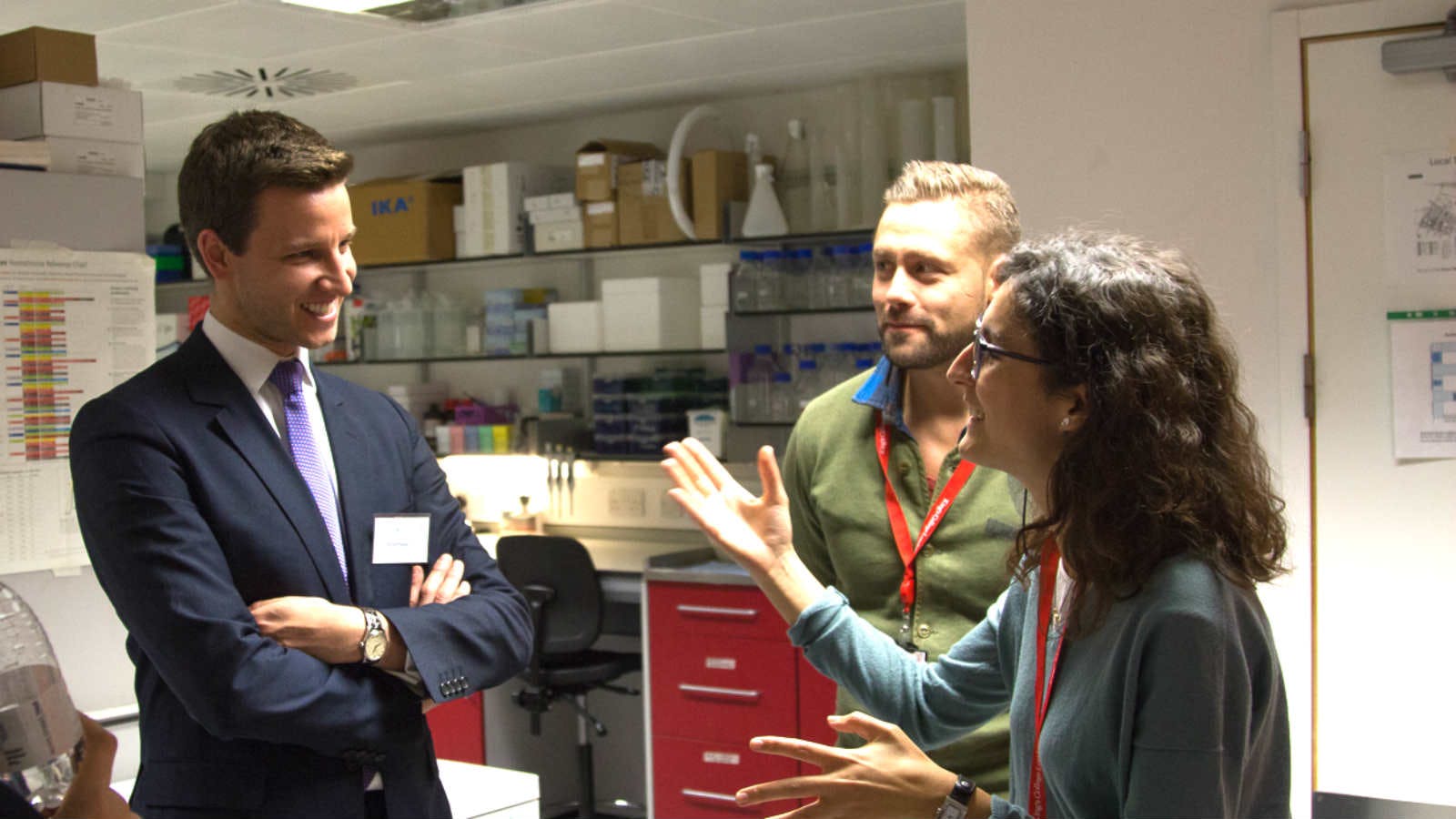
Case Study: how not-for-profit boards can be more successful appointing a Chairman
It’s four times easier to find a talented Trustee than a Chairman. Succession planning is crucial and the time to act is now. Nurole looks at the story behind the appointment of the Chairman of Prostate Cancer Research Centre, who was previously a trustee, as an example for other charities.
It’s well known that succession planning is key to the success of any well-run organisation.
The Chair of a charity plays a critical role leading the board and guiding the strategy. Yet it’s staggering how regularly charity boards fail to put in place Chair successors and have to resort to bringing in an outsider with great difficulty and at a high cost.
Persuading an outsider to take on the role of Chair in a charity requires a leap of faith that few are prepared to take, no matter how passionate they are about the cause. Chair roles are incredibly time consuming, unremunerated and being the figurehead of the organisation is a huge responsibility. Without the benefit of an insider’s view on the board dynamics and an existing relationship with the trustees and executive team, it’s a huge ask.
Hannah Partington, head of Nurole charity recruitment, says finding a chair from outside of the existing board of Trustees is tough. “Our data shows that finding new Trustees who are well equipped with the skills to one day become the Chair is four times easier for organisations than recruiting an external candidate directly into the Chair position,” she says.
The solution is succession planning the moment a new Chair starts. “A charity board should have two Trustees among its membership who could - and are willing to - step up to the job of Chair if the incumbent departs. If yours doesn’t, it really is time to start recruiting,” says Hannah.
By combining this approach with the right mentoring and education plan, and making it part of the role of the incumbent Chair to ensure your key Trustees are ready for the challenge when it comes, Nurole’s data suggests a departing Chair is best used as an opportunity to add to your board’s skill set with another talented Trustee.
The 10 most commonly sought expertise of Trustees for not-for-profit boards
Nurole have put together a list of skills that third-sector boards most often look for in their Trustee appointments:
- Finance
- Digital transformation
- Chair successor potential
- Digital marketing
- Sector-specific expertise (e.g. Education, Medical, etc)
- Fundraising/income generation
- Risk management
- Charity governance
- Change management
- People management
Case study: Prostate Cancer Research Centre Chairman appointment
The Prostate Cancer Research Centre recently appointed Matthew Ellis, a founding member of Robey Warshaw, a leading financial advisory firm, as Chair of the board having identified his potential during his time as a Trustee. Becoming Chair was not something Matthew had considered until he was asked. The incumbent Chair coached him through the transition and he has recently turned to Nurole to hire Trustees that could potentially become his successor.
How did you become involved with the charity?
I was about to climb Mont Blanc with my father when someone suggested we could raise some money for charity while we did it. My father chose the charity, and after several other fundraising events, such as taking part in the London Marathon, I got to know the team at the charity well.
Why did you join the board of Trustees?
When they were looking for a new Trustee they let me know. At the time I was thinking about adding something extra-curricular to my career, and after an interview, I was appointed. Because of my role as a financial advisor for mergers and acquisitions, I had some experience of boardrooms, but I hadn’t worked on a board before.
What preparation did you have for the role of Trustee?
I work in a company where other people are acting as NEDs and so I had some idea of the workload and what it would involve. I spent some time with the Chairman and CEO of PCRC understanding what the role involves. There’s some pretty common sense stuff but also some important legal responsibilities - our primary role is the general governance of the charity and to safeguard its reputation. We have a fairly diverse set of skills within the Trustees, but because of my experience as a financial advisor I felt that there would be areas within my expertise, such as reviewing the budget set out by the chief executive and managing our reserves.
Would you have joined as a Chair of the board?
I think I might have found that quite intimidating. If I was coming from the outside in I would have been worried about the impact the role would have on my personal and professional life, and also about the workings of the board and the charity itself. Once you are committed to the role of Chair there is no way of stepping back, and with the additional work that it brings, I would have been unsure of being able to do it without seeing the work of the Chair from the inside.
How did your transition to Chair take place?
When the previous Chair said he was planning to step down I didn’t put my name forward initially, but other Trustees on the board asked if I had thought about it and suggested I would make a good Chair. I decided it was an opportunity too good to miss. I spoke to my family, friends and work about it and they supported me. The previous Chair Timothy Schroder was very experienced in the role, having been Chair since 2008. He spent some time with me coaching me through the role before I took over and it was very valuable. We have a good relationship and he remains on the board as a Trustee which has been very helpful.
Have you enjoyed becoming the Chair of the board?
I’ve been delighted. How often do you get the chance to Chair such a dynamic, growing and exciting charity such as this? It is a lot of work, but I am lucky that I have an employer that has a lot of trust in me and knows I will always get my job done even if I have to disappear for a few hours to attend to the charity. So far the time in the role has been very positive for myself and the charity has made some exciting progress, so I’m very pleased.
Are you planning for your own succession, despite being new to the job of Chair?
Very much so. We are looking for new trustees now and in the back of my mind is “Would this person be able to step up to the role of Chair in the future?”. Although I don't have any plans to step down anytime soon, I feel that it is important for the charity to have that kind of planning in place for the day that I move on.






